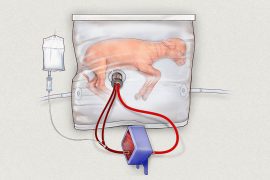By Biophilia Health
Inflammation is an immune response characterised by redness, swelling, heat, pain, and fever that can be either acute or chronic.
Acute inflammation is usually caused by injuries or infections. This type of inflammation should resolve relatively quickly and plays a beneficial or protective role to the host (i.e., aids in the healing of injuries).
Chronic inflammation, on the other hand, is longer lasting. It is a prolonged reaction that influences signalling between cells, blood vessels, enzymes, hormones and organs. Over time, chronic inflammation can contribute to fatigue, body pain, gastrointestinal issues, depression, weight gain or loss, as well as being correlated with many health conditions such as diabetes and cardiovascular diseases like hypertension and atherosclerosis (Rohleder, 2019).
The good news is that Naturopathy can help to resolve acute and chronic inflammation using a combination of dietary and lifestyle modifications, herbal medicine and nutraceuticals. However, to ensure that treatment is effective, we must first identify the causative and/or sustaining factors behind the inflammation.
The good news is that Naturopathy can help to resolve acute and chronic inflammation using a combination of dietary and lifestyle modifications, herbal medicine and nutraceuticals.
For example, in acute inflammation, the causative factor could be an injury whereby the sustaining factor is self-limiting (i.e., the trauma has already passed), so the resolution of inflammation is quicker and usually requires little to no support (i.e., rest, nutraceutical/herbal support to manage pain and swelling, promote healing or to support the immune system in the case of an infection). (Ward, & Lentsch 1999)
Contrarily, chronic inflammation can be more complex, as it may involve a diagnosed health condition, to which we may need to look back years to find the causative factors that originally disturbed normal physiological processes and the factors that currently sustain the inflammation (Margină, et al 2020). This may include:
- A poor diet (e.g., high in processed or refined foods)
- Toxin exposure or accumulation over time
- Ongoing stress or trauma (physical or emotional)
- A sedentary or unhealthy lifestyle
Once all factors are identified, we work with the individual to remove disturbances and establish healthy dietary and lifestyle habits that will allow the inflammation to resolve. Naturopathic treatment may include:
Following an anti-inflammatory diet or increasing the consumption of anti-inflammatory foods, such as:
- Omega-3 fatty acids: a-linoleic acid (ALA) (found in linseeds, chia seeds, legumes, certain nuts like walnuts, and small amounts in leafy vegetables), and the long-chain (LC) acids eicosapentaenoic acid (EPA), docosahexaenoic acid (DHA) and docosapentaenoic acid (DPA) that are found in oily fish and other seafood. Research on LC acids show increased anti-inflammatory properties, cardiovascular benefits, and positive alterations to gene expression (Casas, Sacanella, & Estruch 2014).
- Antioxidants: Found in brightly coloured vegetables like beetroot and carrots, and fruit (especially finger-staining fruits like blackberries and mulberries. Antioxidants protect the body against inflammation by neutralising free-radical damage (Casas, Sacanella, & Estruch 2014).
There is a growing body of evidence showing the correlation between toxins and ill health, including many inflammatory conditions (Yang et al 2014).
Reducing the consumption of pro-inflammatory foods (which contribute to or exacerbate inflammation), such as:
- Refined sugars (granulated sugar and sugar syrups)
- Preservatives and additives (numbers, colourings and flavourings)
- Packaged, store bought foods (biscuits, lollies, chips, chocolates)
- Processed flours (pasta, bread, muffins)
- Red meat from grain-fed cattle*
- Dairy (especially from grain-fed cattle)
- Soft drink, cordial, alcohol and caffeine
(Casas, Sacanella, & Estruch 2014)
*Limit to a palm-size per day. Red meat from grass-fed beef is higher in omega-3s compared to grain-fed beef (which is higher in pro-inflammatory omega-6 fats).
Reducing toxin exposure and supporting detoxification
There is a growing body of evidence showing the correlation between toxins and ill health, including many inflammatory conditions (Yang et al 2014). Click here to see the research of Dr Joseph Pizzorno on the symptoms indicative of specific toxins, or here for the diseases indicative of toxins. For example, joint pain is correlated with exposure to aluminium, cadmium, dioxins, and PCBs. If toxins appear to be a contributing factor to your condition, naturopathic treatment can aid in the detoxification process with additional dietary and lifestyle modifications, herbal medicines and/or nutraceuticals.











